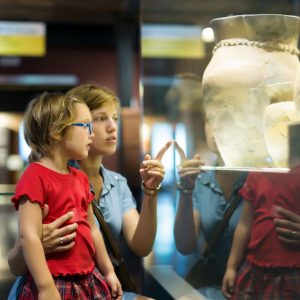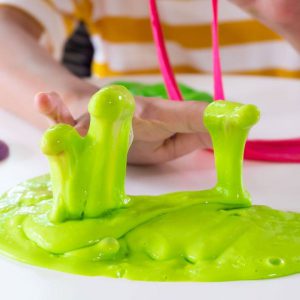Today we have some top tips for nurturing your budding scientists (and growing your own love of science as well!)
Tip #1 – See the science in everything
Science is all around us. By teaching kids to “seek out the science” they will begin to see science as not just a subject at school, but a path to understanding the world they live in.

How do you do it? Ask questions such as “What would happen if…” 🤷
👉What would happen if…we didn’t use a handbrake in the car when parking on a hill?
👉What would happen if…the wall on the sunny side of the house was painted black instead of white?
👉What would happen if…we tried to heat up water in a large pot compared to a small one?
You don’t have to know the answer, just start the discussion and talk about what the answer might be. Then you can find out together by searching on the internet, looking in books or even conducting your own experiment to see.
Encouraging children to think about why things are will spark their curiosity, showing them that science is all around them.
Tip #2 – Talk the science talk
What do you chat about as a family at dinner? Or on the way to school? These family times are a great chance to talk a bit of science, without your kids even really realising it is happening. Need a conversation starter? How about some of these?

🌪️Did you see the tornadoes in Texas on the news? What do you think causes those? Why don’t we have any here?
🌛How about that latest rocket ship heading to the moon? What do you think you’d take if you went to the moon?
🕴️I’m not sure that storyline in the movie last night about time-travelling is very realistic…do you think time travel is possible?
Make it sound fun and they won’t even realise they are learning! As with our tip yesterday, you don’t always have to find an answer, it’s all just about having a conversation and stimulating their little minds to think about everyday things in a different way.
Give it a go over dinner tonight!
Tip #3 – Put it in context
Most people learn best by doing – being able to see, touch or experience things provides a richer learning experience (that’s why we encourage active learning through our experiments)!
So to reinforce the textbooks, take the kids to the real thing. For example, if they are learning all about flight, find an aviation museum. If they are doing a project on monkeys, visit the zoo. If they are learning about the solar system, visit an observatory. 🐵

If you don’t have any of these nearby, then the next best thing is to draw on other resources, such as YouTube videos, documentaries or magazines. 📺
Backing up the theory with your own field trips just adds a different perspective and a way of thinking to the topic – reinforcing your child’s learning in different ways.
Plus, they’re fun!
So keep an eye out for special exhibits at your local museum or other attractions that can help your child understand science (even theme parks can do the trick!) 🎢
Tip #4 – Take science on holiday
There are endless opportunities to integrate a bit of science in your next family holiday.
Going to the beach? Talk about the tides, different creatures on the beach, the variety of shells, or the rock formations nearby. 🏖️

Going on a plane? Did you see our post last week on winglets? Talk about how planes take off, how we breathe at altitude and why your ears pop. ✈️
Heading to the slopes? How cold does it have to be to snow? Why do we say black ice is black when it is actually clear? What happens to your body when you get really cold? ⛷️
As always, you don’t need to know the answer – just starting the conversation is enough to get their little minds ticking over, and together you can try and figure it out, or go searching for solutions.
Tip #5 – Walk the science walk
Once you’ve got your little scientist nattering non-stop about all things science, it’s time to build on that a bit further and do your own little experiments.
These can be super simple things such as testing the absorbency of different kinds of fabrics, or using an app to identify stars in the sky (SkyView is a good one).⭐️

Of course, we can help you out with ideas here – the Experimentary site houses lots of experiments for kids and parents to try at home. If you jump on and sign up for a free, no obligation trial, you’ll be able to see the Australian curriculum-based experiments on offer at each age level and try them out.💻
We’ve made it super-easy for you to grow your child’s love of science beyond the classroom – each experiment is explained in an easy-to-follow video. There’s a list of things you’ll need, step by step instructions to formulate a hypothesis and conduct the experiment, then a spot to write up your results.🔍
We hope you’ve enjoyed our tips, and whether you are a parent who is a bit daunted by science yourself, or a home-schooler fresh out of ideas, Experimentary is here to find the scientist in us all.



